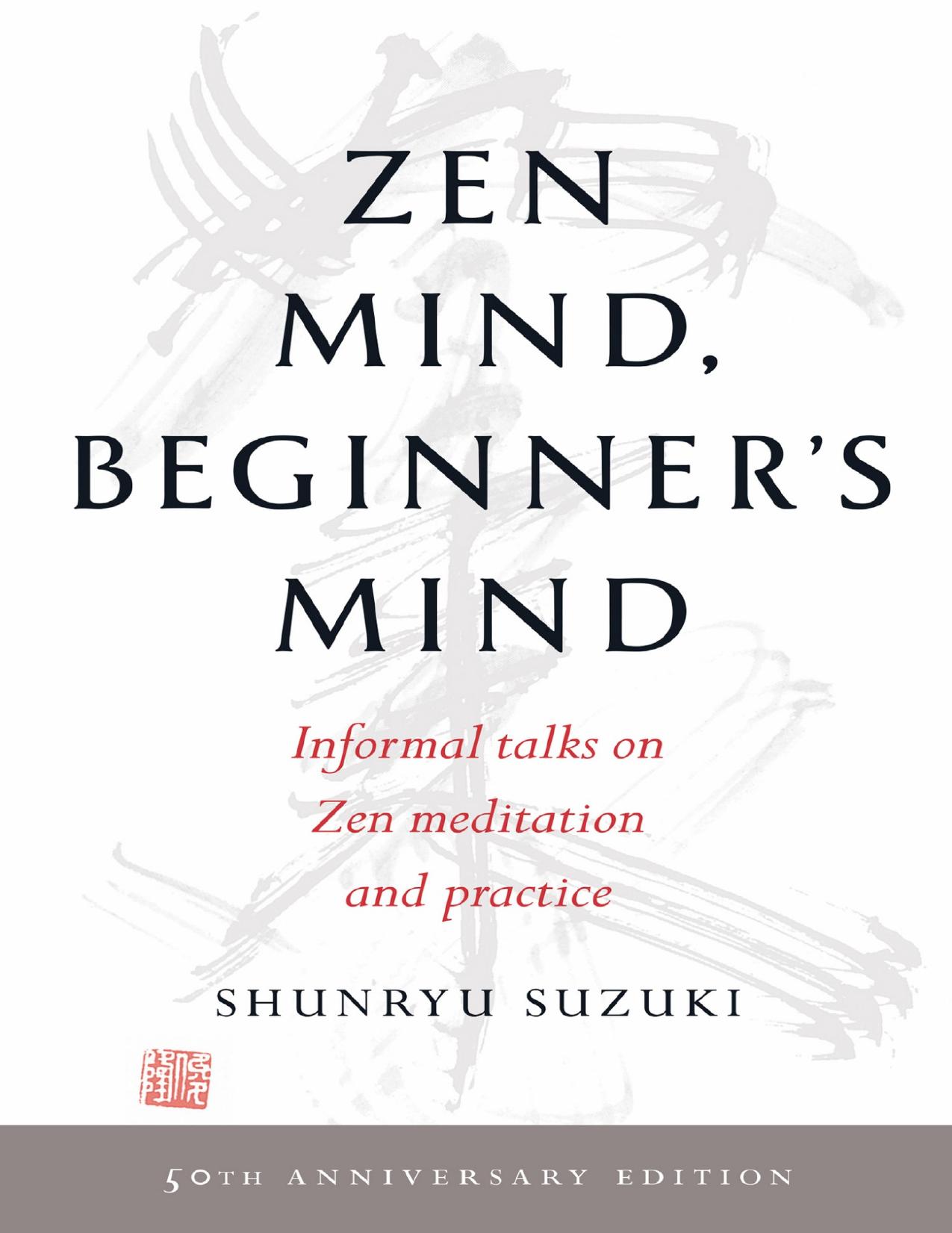Zen Mind, Beginner's Mind: 50th Anniversary Edition by Shunryu Suzuki

Author:Shunryu Suzuki
Language: eng
Format: azw3, pdf
Publisher: Shambhala
Published: 2020-06-02T00:00:00+00:00
COMMUNICATION âWithout any intentional, fancy way of adjusting yourself, to express yourself as you are is the most important thing.â
Communication is very important in Zen practice. Because I cannot speak your language very well, I am always seeking some way of communicating with you. I think that this kind of effort will result in something very good. We say that if you do not understand your masterâs words, you are not his disciple. To understand your masterâs words, or your masterâs language, is to understand your master himself. And when you understand him, you find his language is not just ordinary language, but language in its wider sense. Through your masterâs language, you understand more than what his words actually say.
When we say something, our subjective intention or situation is always involved. So there is no perfect word; some distortion is always present in a statement. But nevertheless, through our masterâs statement we have to understand objective fact itselfâthe ultimate fact. By ultimate fact we do not mean something eternal or something constant, we mean things as they are in each moment. You may call it âbeingâ or âreality.â
To understand reality as a direct experience is the reason we practice zazen, and the reason we study Buddhism. Through the study of Buddhism, you will understand your human nature, your intellectual faculty, and the truth present in your human activity. And you can take this human nature of yours into consideration when you seek to understand reality. But only by the actual practice of Zen can you experience reality directly and understand in their true sense the various statements made by your teacher or by Buddha. In a strict sense, it is not possible to speak about reality. Nevertheless, if you are a Zen student, you have to understand it directly through your masterâs words.
Your masterâs direct statement may not be only in words; his behavior is likewise his way of expressing himself. In Zen we put emphasis on demeanor, or behavior. By behavior we do not mean a particular way that you ought to behave, but rather the natural expression of yourself. We emphasize straightforwardness. You should be true to your feelings, and to your mind, expressing yourself without any reservations. This helps the listener to understand more easily.
When you listen to someone, you should give up all your preconceived ideas and your subjective opinions; you should just listen to him, just observe what his way is. We put very little emphasis on right and wrong or good and bad. We just see things as they are with him, and accept them. This is how we communicate with each other. Usually when you listen to some statement, you hear it as a kind of echo of yourself. You are actually listening to your own opinion. If it agrees with your opinion you may accept it, but if it does not, you will reject it or you may not even really hear it. That is one danger when you listen to someone.
Download
Zen Mind, Beginner's Mind: 50th Anniversary Edition by Shunryu Suzuki.pdf
This site does not store any files on its server. We only index and link to content provided by other sites. Please contact the content providers to delete copyright contents if any and email us, we'll remove relevant links or contents immediately.
| Philosophy | Spirituality |
The Way of Zen by Alan W. Watts(6600)
Ego Is the Enemy by Ryan Holiday(5413)
The Art of Happiness by The Dalai Lama(4125)
The Book of Joy by Dalai Lama(3976)
Why Buddhism is True by Robert Wright(3446)
Spark Joy by Marie Kondo(3298)
Shift into Freedom by Loch Kelly(3193)
Happiness by Matthieu Ricard(3040)
A Monk's Guide to a Clean House and Mind by Shoukei Matsumoto(2902)
The Lost Art of Good Conversation by Sakyong Mipham(2649)
The Meaning of the Library by unknow(2564)
The Unfettered Mind: Writings from a Zen Master to a Master Swordsman by Takuan Soho(2305)
The Third Eye by T. Lobsang Rampa(2257)
Anthology by T J(2206)
Red Shambhala by Andrei Znamenski(2193)
The Diamond Cutter by Geshe Michael Roach(2058)
Thoughts Without A Thinker: Psychotherapy from a Buddhist Perspective by Epstein Mark(2011)
Twilight of Idols and Anti-Christ by Friedrich Nietzsche(1891)
Advice Not Given by Mark Epstein(1878)
